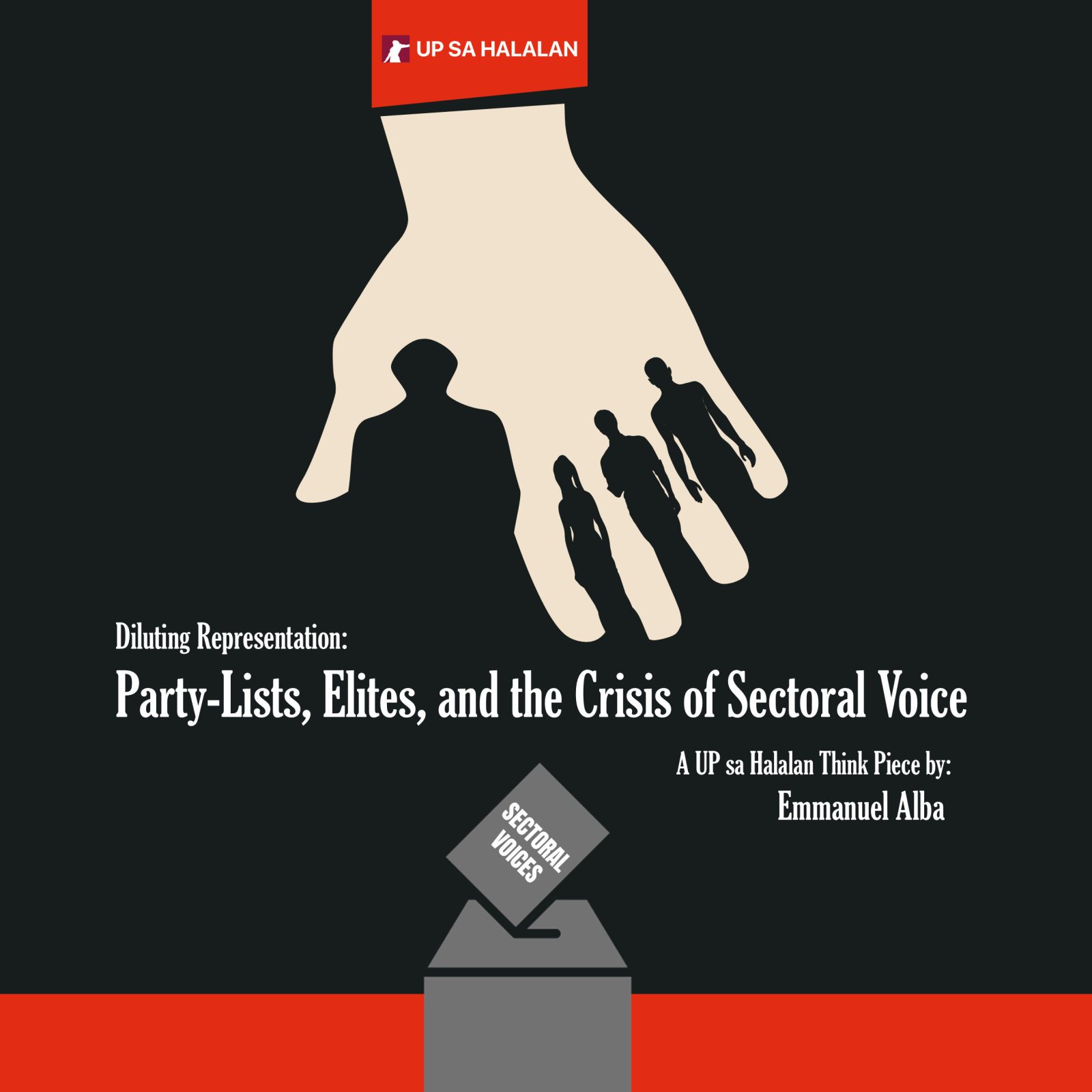Without public vigilance and institutional accountability, the promise of inclusive representation will remain hollow.
More than 25 years have passed since the passage of Republic Act No. 7941 – the law that created the Party-List (PL) system in the Philippines, its promise of inclusive representation appears to be faltering. Designed to widen political participation, it was meant to give voice to those long excluded from the country’s elite-dominated electoral contests – not just economically poor, but groups structurally disadvantaged under a winner-takes-all system that favors entrenched political clans.
Yet in the most recent national polls in 2022, over 34% of voters either left the party-list portion of their ballot blank or submitted votes that were rendered invalid, based on the data from the Commission on Elections (COMELEC). This quiet act of omission suggests more than just voter confusion or apathy – it may reflect growing public skepticism about the system itself.
The Drift from Purpose
When the 1987 Constitutional Commission introduced the PL provision, its primary aim was to foster proportional representation for groups disadvantaged in the electoral arena – those lacking the resources or machinery to compete in traditional electoral races. By reserving 20% of the House seats for party-list groups, the system was envisioned as a step toward a more inclusive legislature. However, a 2001 Supreme Court decision expanded this scope, emphasizing the system as a means of social justice. The ruling framed party-list participation as a tool to empower not just the electorally sidelined, but also those facing economic and social marginalization – subtly shifting the system’s focus from structural disadvantaged to broader socio-economic exclusion.
But over time, that vision has been diluted. A 2013 Supreme Court ruling redefined that system’s boundaries, allowing participation by groups and parties that do not necessarily represent marginalized sectors. What began as a corrective mechanism for inclusivity now risks serving as an alternate pathway for the very elites it was designed to counter.
Of the 54 PL groups in the 19th Congress, 27 incumbent PL representatives – or roughly 44% – have ties to political dynasties, based on the definition that includes families with members holding elected office either concurrently or across election cycles. This means nearly half of the 61 PL representatives come from families already entrenched in traditional politics, undermining the system’s intent to give voice to the electorally disadvantaged. The remaining 56% are not dynasty-linked, yet their capacity to influence legislation is diluted by the disproportionate presence of politically established groups. This pattern aligns with Kontra Daya’s recent findings that over half of the 156 PL groups vying for seats in 2025 lack genuine representation of marginalized sectors, with many linked instead to political clans to business interests. These developments reflect how the system, once envisioned as a tool for inclusive governance, has increasingly become a backdoor for elite consolidation.
The Party-List Path to Power: Reform or Replication?
Among the 61 incumbent PL representatives in the 19th Congress, five are running for Senate seats in the 2025 midterm elections. This raises a crucial question: is the party-list system being used to elevate national visibility for personal political ambition, or is it a legitimate pathway to broaden advocacy for marginalized sectors? While running for higher office could amplify sectoral issues, it may also signal how the system is increasingly seen as a launchpad for individual careers rather than collective representation.
At the same time, eight incumbent PL lawmakers are pursuing local government posts, likely banking on their congressional exposure to boost electoral prospects. Interestingly, four of these candidates are challenging entrenched families at the local level. On the surface, this appears to disrupt the dominance of local elites. Yet there’s a paradox: some of these challengers are also laying the groundwork for their own dynastic footholds, with family members simultaneously seeking elective posts in the same localities. The cycle of elite reproduction thus appears to be regenerating within the very spaces meant to democratize political access.
Reclaiming the Promise of Representation
Fixing the PL system begins with reforming its institutional framework. The COMELEC must implement stricter rules to screen groups based on genuine sectoral representation. Clearer criteria and transparency in accreditation could prevent the co-optation of the system by political dynasties and vested interests. A recent example is the COMELEC en banc resolution affirming the disqualification of the Pilipinas Babangon Muli (PBBM) party-list, citing irregularities in the declared residence of the nominees and their failure to qualify as bona fide members of a regional party representing Calabarzon.
While the 1987 Constitution calls for an anti-dynasty law, legislative inaction – driven by self-interest – makes its passage unlikely. Still, such a law remains vital for leveling the political playing field. In the meantime, electoral reforms within COMELEC’s reach – such as incentivizing the coalescence of sectoral groups around shared advocacies – could shift the system toward platforms based on shared ideology or advocacy – potentially strengthening the weak party system in the Philippines.
On the other hand, abolishing the PL system entirely would be misguided. It would shut the door on genuine sectoral groups that lack the wealth or machinery to compete in traditional races, leaving elite actors untouched. Instead, reform should aim to protect this space from elite capture and restore its original purpose.
Ultimately, reforms must be paired with civic engagement. An informed electorate is essential in defending democratic institutions. Without public vigilance and institutional accountability, the promise of inclusive representation will remain hollow.
Mr. Emmanuel Alba is a Teaching Associate at the University of the Philippines Diliman Department of Political Science.
